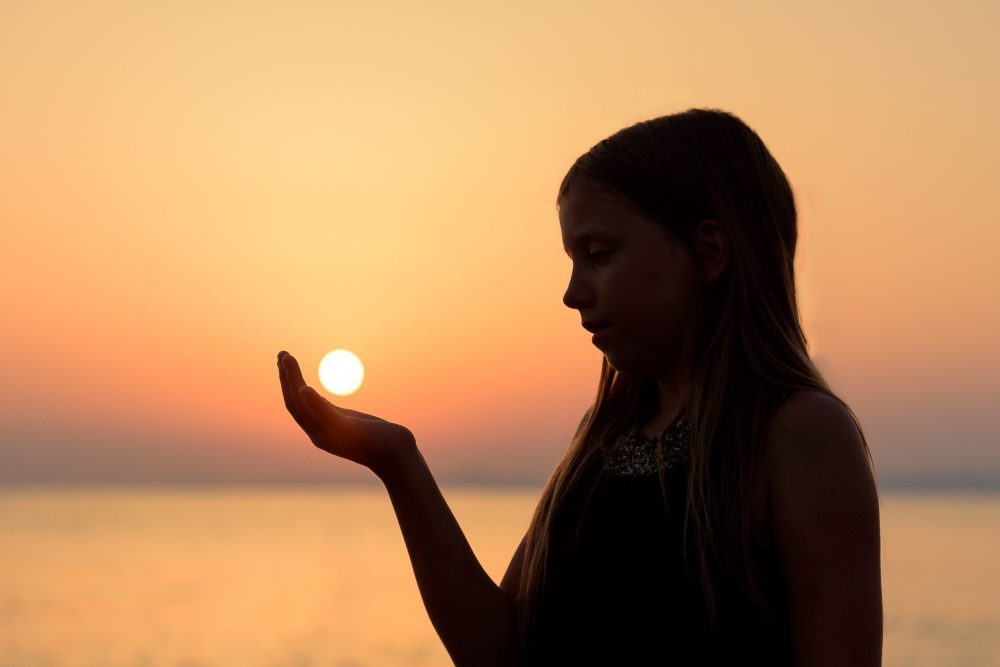When times are hard, whether due to national events or dating and relationship pains, we can turn away from hopelessness towards hope in 3 small steps.
“Make decisions based on hope and possibility” – Michelle Obama.
A few weeks after 9/11 I was sitting at an outdoor mall watching some children running through a fountain, squealing with delight. Their laughter was so contagious that as time went on the adults sitting in the area began to smile too. I looked around and it occurred to me that this was the first time since that awful day that we gave ourselves permission to smile again.
Recently I was taking a walk to clear my head after feeling haunted by the news and heard some nearby young children laughing so hard that I began to laugh too. It brought me back to that moment after 9/11 when all hope seemed lost and some beautiful innocence reminded me that where there is life, there is hope.
Whether grief is created by a large scale horrific event, news that leaves your heart aching, or smaller painful moments like a relationship problem or a breakup, the best we can do is to stay present to what is happening and to remember who we are. Here I share 3 ways to return to hope amidst a dark time.
1. Acknowledge unresolved grief.
One of the most life-changing things we can ever do for ourselves is to process stuck grief. Because we live in a grief illiterate society, we are socialized to ignore bad feelings and put on a happy face. When we shift energy from trying to ignore our feelings to going into the grief and processing it, we can be healed in ways that allow us to feel whole again. Acknowledging that grief is appropriate and real can help us move through grief instead of around it. Whenever we release old baggage, we open up more to who we already are. This authentic unveiling is empowering and much needed in today’s world, whether in personal relationships, or our identity as humankind.
2. Choose courage over comfort.
Whether it’s having a hard conversation with your girlfriend, setting boundaries with an ex, or addressing what is happening in national news, courage requires willingness to be uncomfortable. Dr. Harriet Lerner, author and psychotherapist, explains that it is not fear that stops us from doing the brave thing in our lives. She describes the problem as avoidance and explains that our desire to be comfortable is so great that we avoid doing or saying the thing that will evoke fear and other difficult emotions (Lerner, 2014). Facing a difficult relationship issue or threats to equality for all people requires going into uncomfortable and honoring our feelings without judgment.
3. Get out of victim consciousness.
One of the best things we can do to interrupt our disempowered feelings is to change our stories. Often, we have an experience, and we respond it to with various thoughts and feelings. Then we develop behaviors and patterns around those thoughts and feelings that reinforce the experience. The trick is to be aware of the negative reactions created by the experience, recognize them, and try to ensure that our behavior is coming from a place of conscious, positive thoughts. This happens by practicing self-responsibility and empowering ourselves. It breaks the cycle of victim thinking. By practicing moving from victim thinking to empowered thinking we can evolve away from the belief that life happens to us to one that supports us in our own agency to make a difference in our own lives and the lives of others.
Whenever we are suffering, whether due to dating and relationship heartaches, or national news sorrows, one of the most empowering things we can do is to acknowledge whatever is happening without judgment and bring more love to ourselves. Perhaps nothing is needed in the world more right now than love – towards people who don’t look like and think like us, towards communities that don’t vote like us, and most of all towards ourselves.
